Modern double-braid line, with its shiny white weave and colored tracers, isn’t a good match for the subtle earth-tone elements of a traditionally built vessel. For SOLVI, with her bright-finished cedar and her bronze hardware, we wanted a low-stretch, smooth-running twisted line that had the aesthetics of a traditional hemp cordage and the strength of synthetic line, but without the slippery plastic feel.
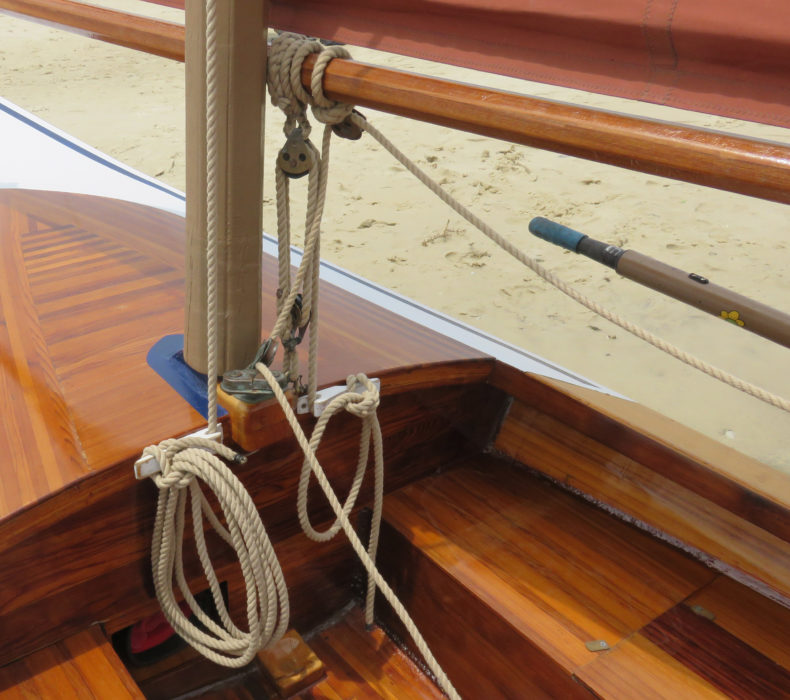 Photographs by the author
Photographs by the authorThe P.O.S.H. line splices well, coils neatly, and looks right on a wooden boat.
After some Internet searching we came across P.O.S.H. (Portside Out, Starboard Home) manufactured by Langman Ropes. It has a soft feel that’s easy on the hands and a natural-looking tan color that looks right with our boat’s bright-finished wood. The three- or four-strand polyester twisted line that is UV-stabilized, pre-stretched, and made with spun yarns rather than filament yarns—think knitting yarn versus monofilament fishing line. The spun and twisted polyester yarns in P.O.S.H. are not as stable as filaments, therefore in order to meet the grade set by modern double braids they must go through the additional processes of heating and stretching to lower their elongation under load. The line then reaches a mere 2 percent stretch at 20 percent load of its breaking strength. This is better than New England Rope’s classic Sta-Set double-braid, which has a 3.5 percent stretch under the same load.
P.O.S.H. has good resistance to abrasion and chemicals, and its strength is not diminished when wet. We find its handling characteristics when wet are well above the typical double-braid; because it’s less slippery, it requires less grip strength. The spun yarns are not as strong as filaments—10mm P.O.S.H. has a 3,500-lb breaking strength versus 4,400-lb for double-braid—but the line is well suited to uses aboard small boats, and the aesthetics and the comfortable feel make for a worthwhile compromise.
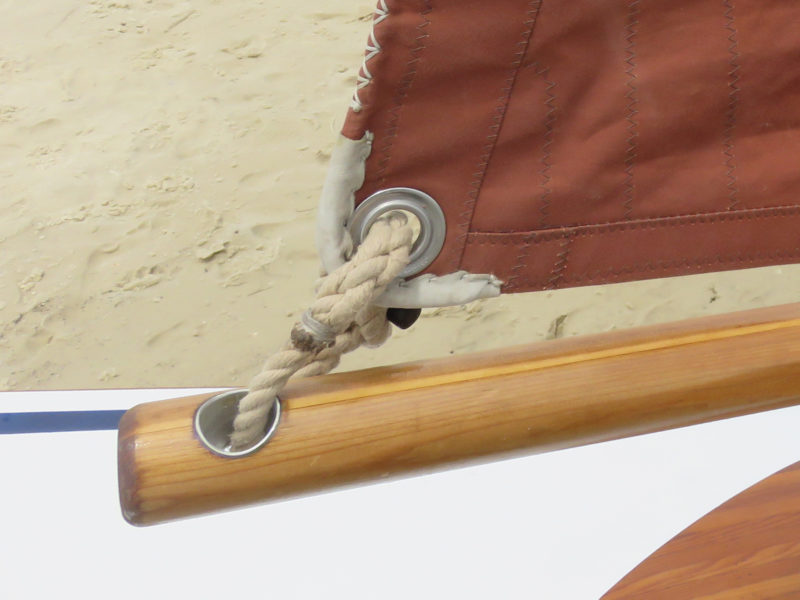
The strands keep their shape when spliced; the cut end can be melted with a hot knife to prevent fraying below the whipping.
Aside from the intended use as running rigging, P.O.S.H. lends itself to decorative knots and ropework. What I like most about this line is the ease with which it splices. All of our sail controls—outhaul, reefpoints, halyard—are done with simple spliced toggle shackles, and all of our blocks are attached to the boat with spliced loops. Splicing P.O.S.H. line requires no special tools and is something that can be done quickly and easily. When untwisted for splicing, the three strands resist unraveling, allowing for a tight and tidy splice. With a little practice I found that I could even neglect taping the strand tips and, if necessary, could easily retwist the strands or even the line itself. The soft shackles we make take the place of metal shackles, which can clang around and scratch a carefully laid finish and can be dangerous when whipped around by the wind. A little pleasant work with P.O.S.H. reduces these risks and saves money while also producing fittings that look just right on our lug-rigged boat.
After more than 1,000 miles of sailing with this line for every piece of running rigging on the boat, we had no problems or complaints. It held up well to both fresh- and saltwater conditions, constant sunlight, and the chafe of everyday use.![]()
Danielle Kreusch grew up in Salt Lake City, Utah and spent a lot of time hiking and camping in the mountains. After moving to Florida to finish her BA in Psychology and Child Development, Danielle met Kyle Hawkins, who took her sailing on their third date. Their Mississippi River trip was their first small-boat excursion, and they have both fallen in love with the idea of continuing to travel in small boats.
P.O.S.H is made in Holland by Langman Ropes. It is available from R&W Ropes and the Wooden Boat Chandlery in the US, G.H. Laco in Canada, Classic Boat Supplies in Australia, A l’Abordage in France, and Atlantic Yacht Services in Spain.
Is there a product that might be useful for boatbuilding, cruising or shore-side camping that you’d like us to review? Please email your suggestions.
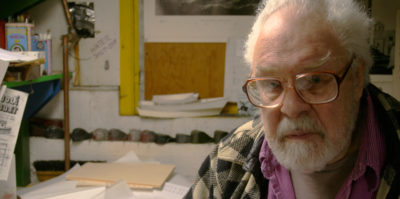
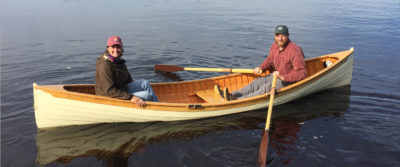
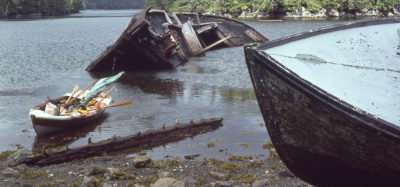
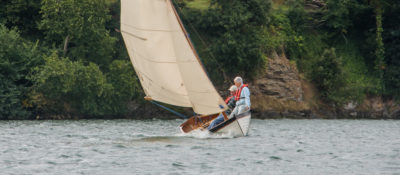
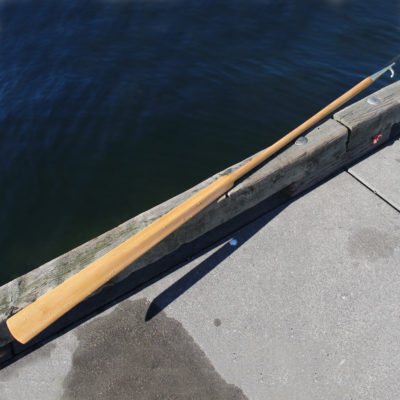
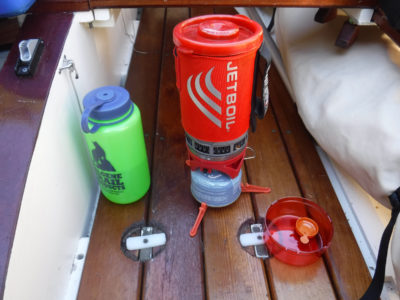
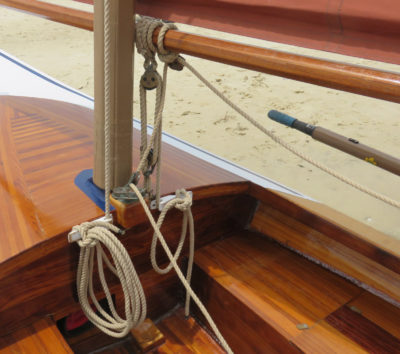
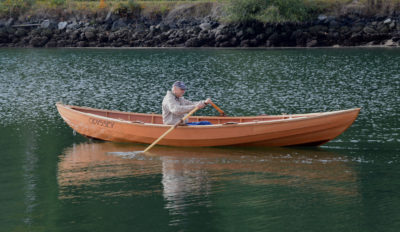
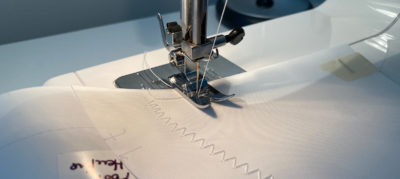
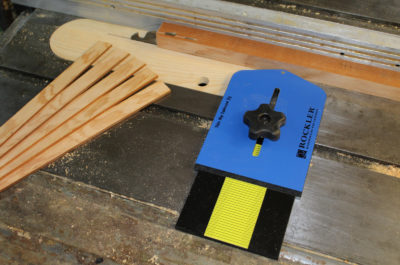
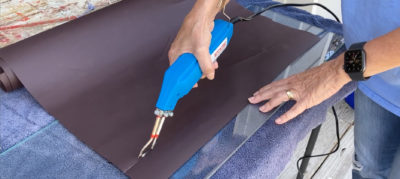
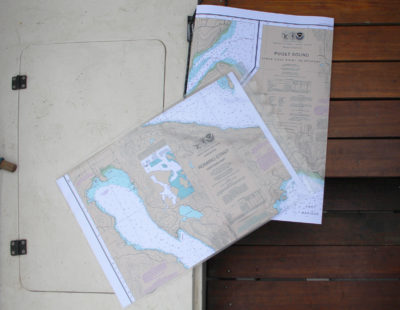
Nice line. Thanks for sharing all the tech details! We looked at POSH and liked it, but went with New England Rope’s braided Sta-Set Vintage for its feel. Either would have worked great on our Penobscot 14. R+W Rope was kind enough to send us several samples; we compared the look and feel of Hempex, POSH and Sta-Set on a YouTube video.
Cheers
Kent and Skipper
Also check out R&W Rope.
I really like their Hempex which I’ve been using on my Pathfinder.
I have read that P.O.S.H. had to do with preferred location of staterooms on the ships going to and from India, since the fierce sun would be (mostly) on the starboard side going to India, and on the port side returning to England. I’m guessing this would be after the Suez Canal was built.